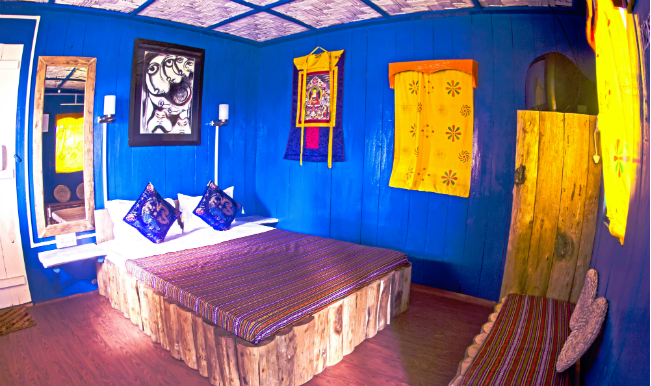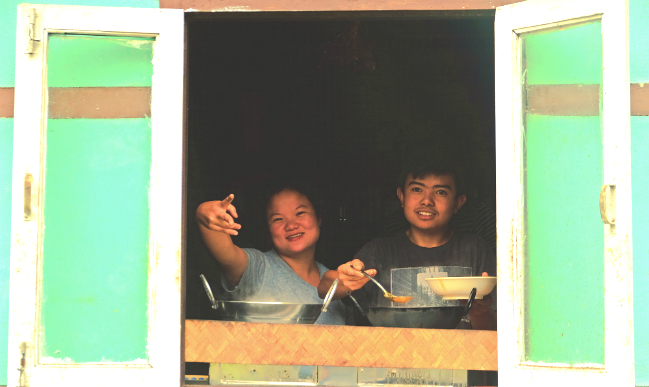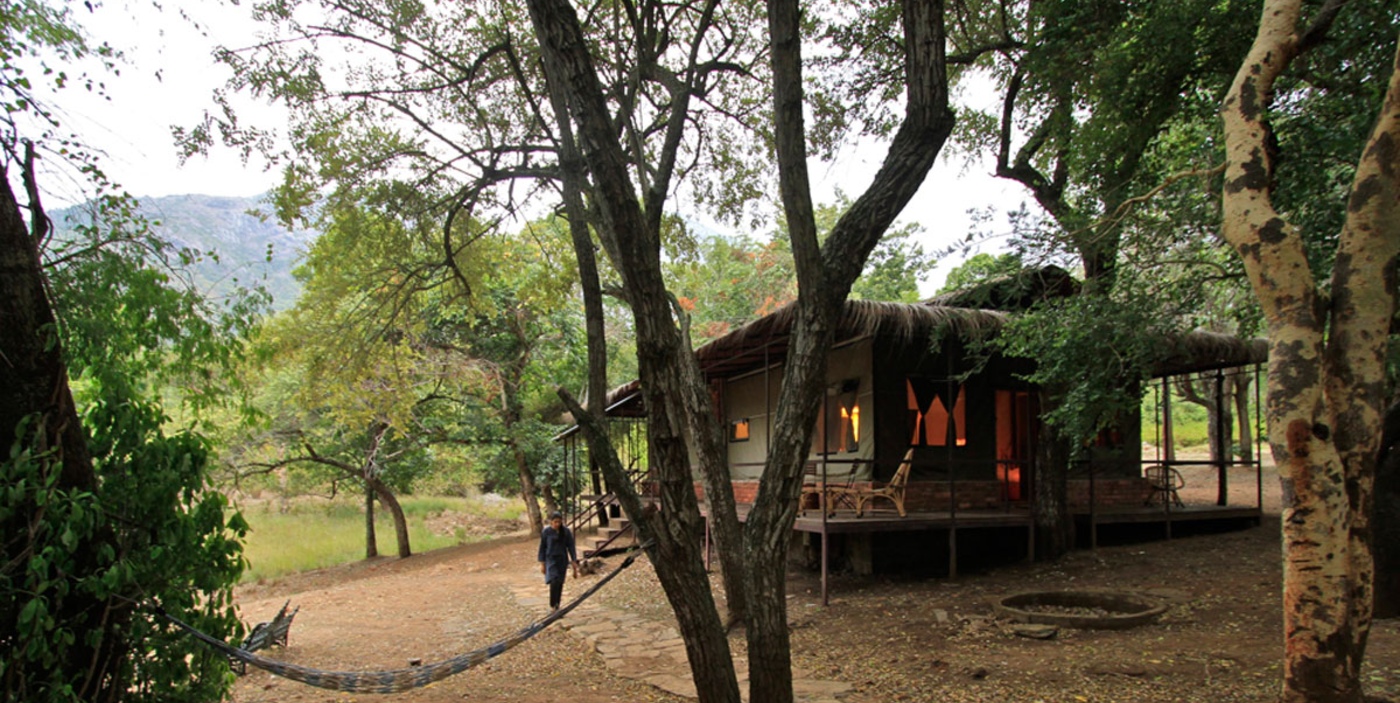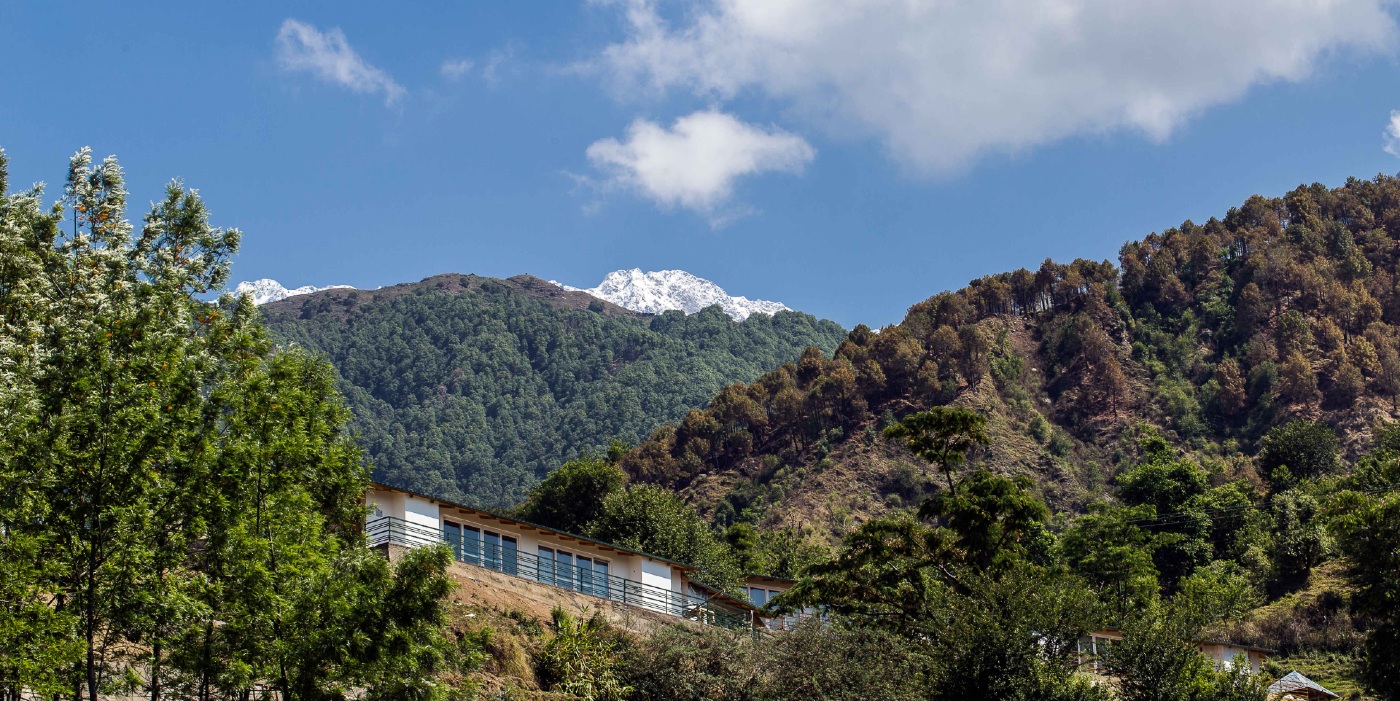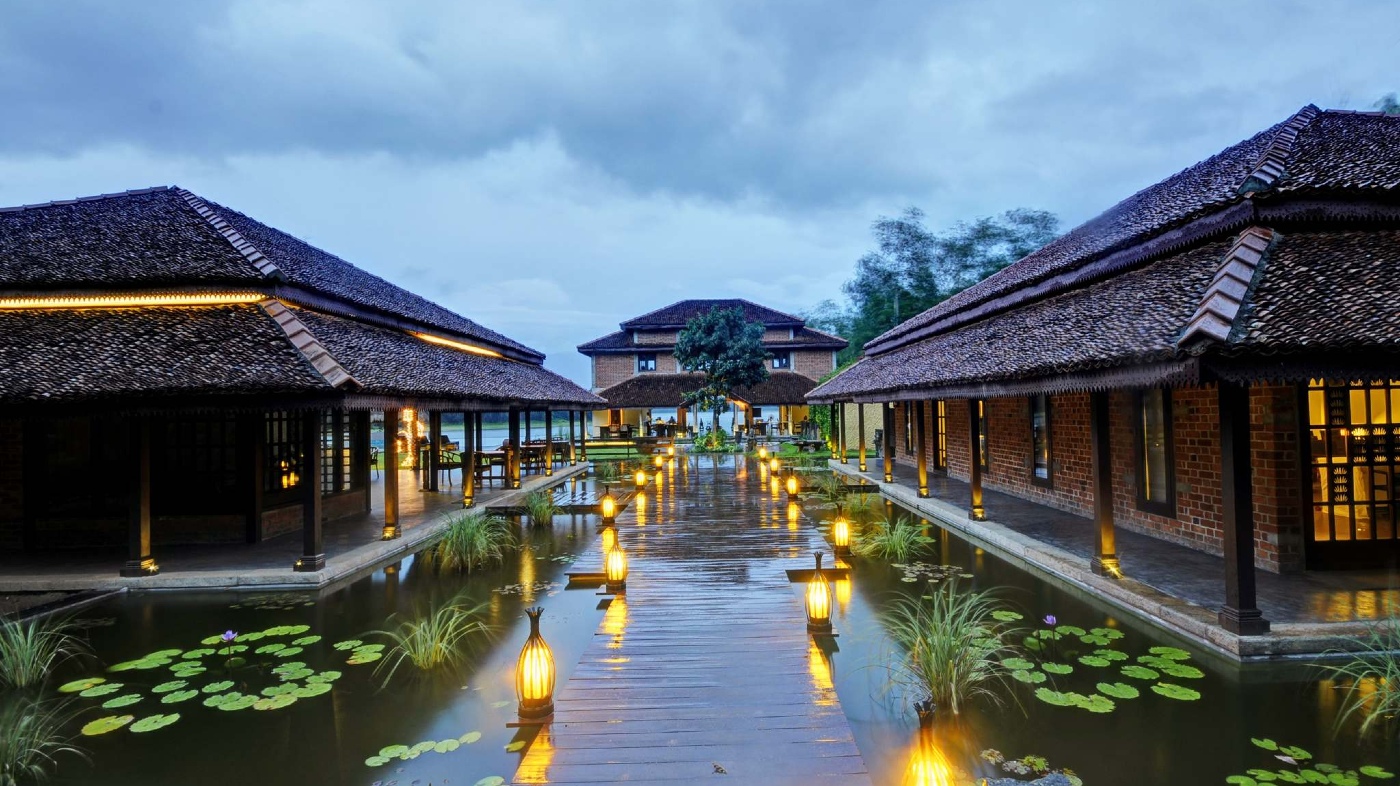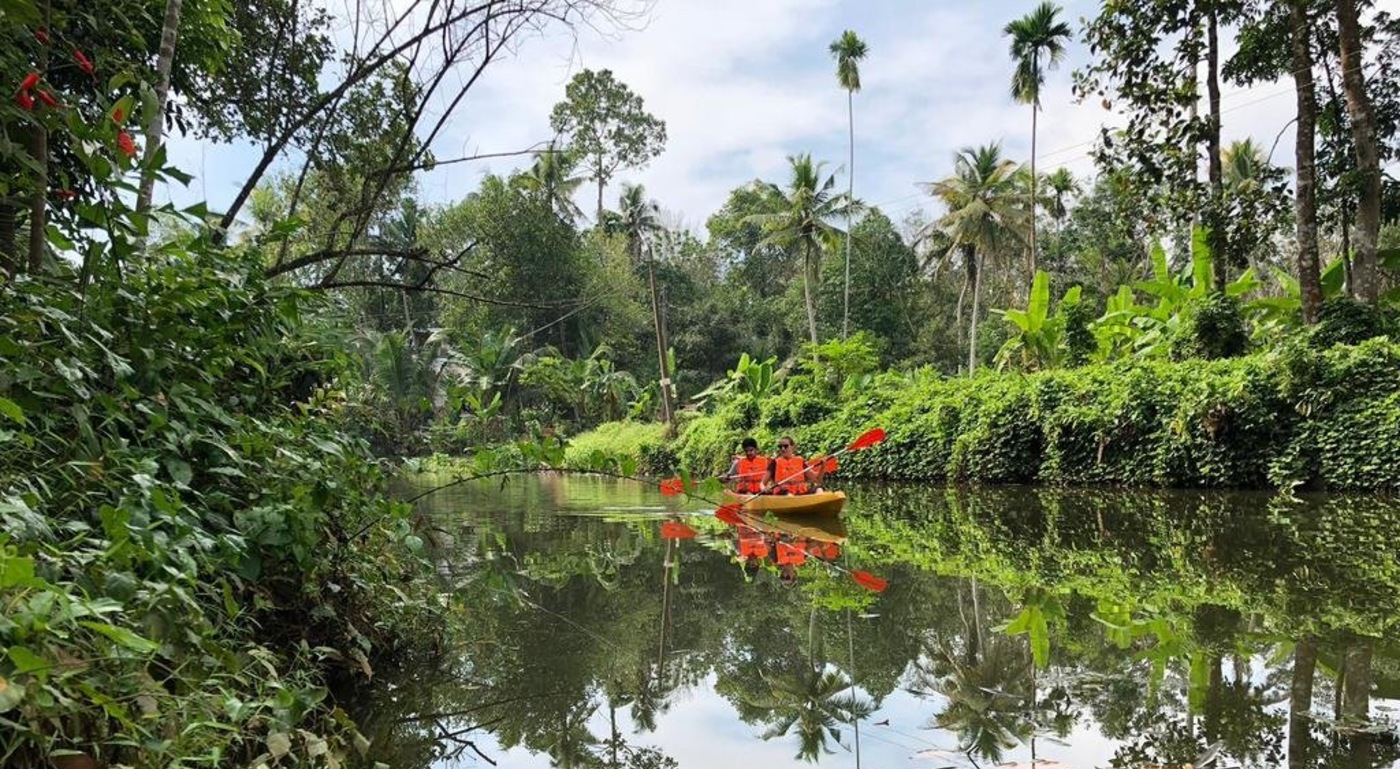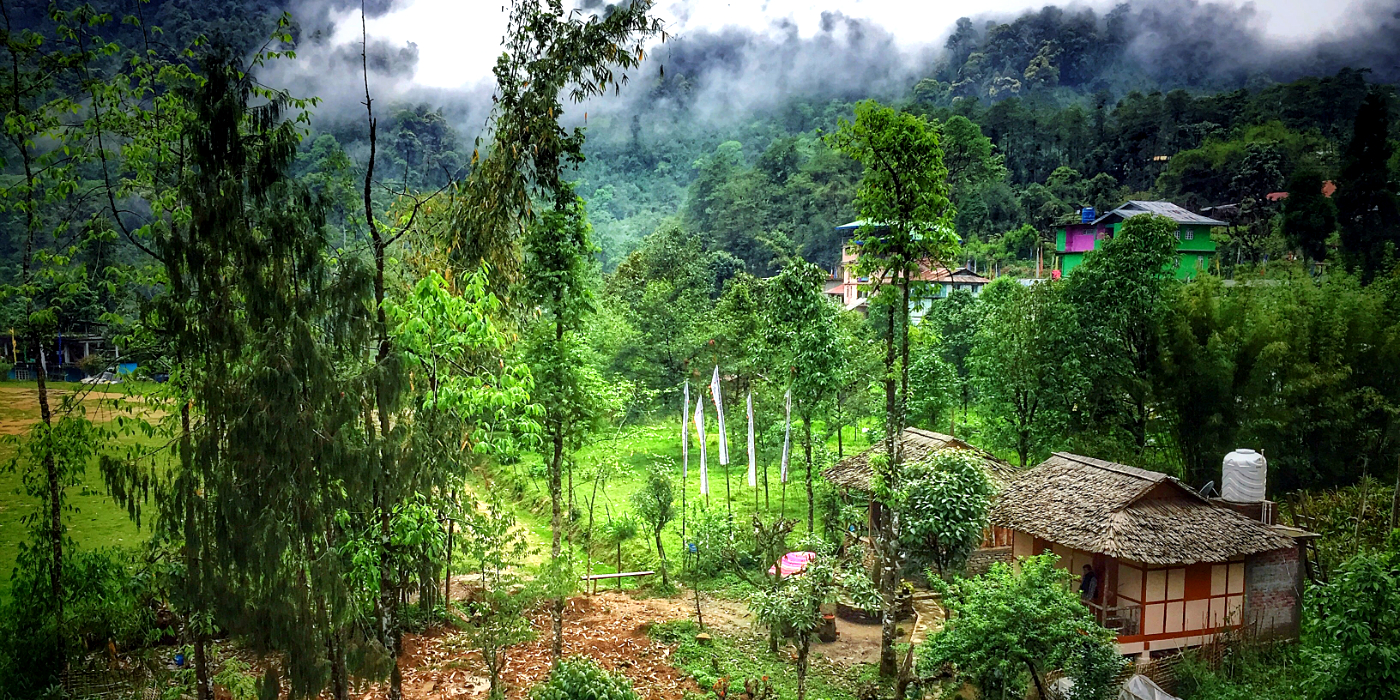
A Bhutia family-run homestay in Sribadam village, West Sikkim
Sikkim’s stunning natural beauty needs no introduction. The tall mountains, lush greenery, rich culture and traditions and delicious local cuisine make Sikkim a great destination for travellers. What makes travelling here even better is the fact that the state has numerous homestays and travel outfits that follow the principles of Responsible Travel, ensuring tourism is sustainable and actually does good.
One such homestay is Eshab located in a quiet forest village in the mountains of West Sikkim. A Bhutia family run homestay, owner Kesang Dorjee Bhutia has constructed traditional Bhutia, Lepcha and Subba tribal huts for guests to stay in. Located close to Darjeeling (42km) and Pelling (35km), Sribadam is a tribal village blessed with a very picturesque setting with green, rolling mountain valleys, pine forests, gushing rivers and waterfalls and organic farms and fruit orchards.
A stay in Eshab is a great way to experience traditional Sikkimese lifestyle. The food is an important part of the experience here. Guests have communal family meals and the meals are made primarily of ingredients sourced from the homestay’s organic garden. The food served is traditionally Sikkimese and meals could comprise of dishes like kauri (a warming winter soup with wheat shells), momos (dumplings) and gyathuk (meat or vegetable soup).
The accommodation is comfortable, with the individual ensuite huts providing privacy for guests. The farms, orchards and forests provide great opportunity for hikes and treks, ensuring travellers can explore local village living and the natural beauty of the place. There are monasteries, lakes and waterfalls nearby to visit.
The homestay’s prayer room can be used to try out meditation under the guidance of a lama or nun from the local monstery. Be sure to ask Kesang about trying out the traditional spa or Menchu experience. The ethnic hot stone bath is said to soothe the nerves and help relieve body ache and joint pain. Herbs for the menchu are cultivated in the herbal garden at Eshab, while others are collected from the nearby forests. The traditional procedure for preparing the menchu is unique to the region and has been passed down the generations. Specific herbs and types of stones are used with the whole process of making the menchu taking around four to five hours. To create the menchu two wooden tubs are filled with fresh spring water and the stones are heated in a fire. When the stones are hot they are added to the water along with herbs and barks. The traditional ‘kauri’ dish" or the local millet alcohol or chang is served during the bath to help maintain blood pressure. Do remember that at least 10 hours advance notice is required for your hosts to prepare the bath.
Between the scenic beauty, the eye-opening hikes and treks, the heart-warming food and the soul-warming menchu, a traveller is sure to go back from Eshab feeling like a whole new person!
Price: Rs 1,200 perperson per day for accommodation and all meals
Read more: http://eshabhomestay.com/
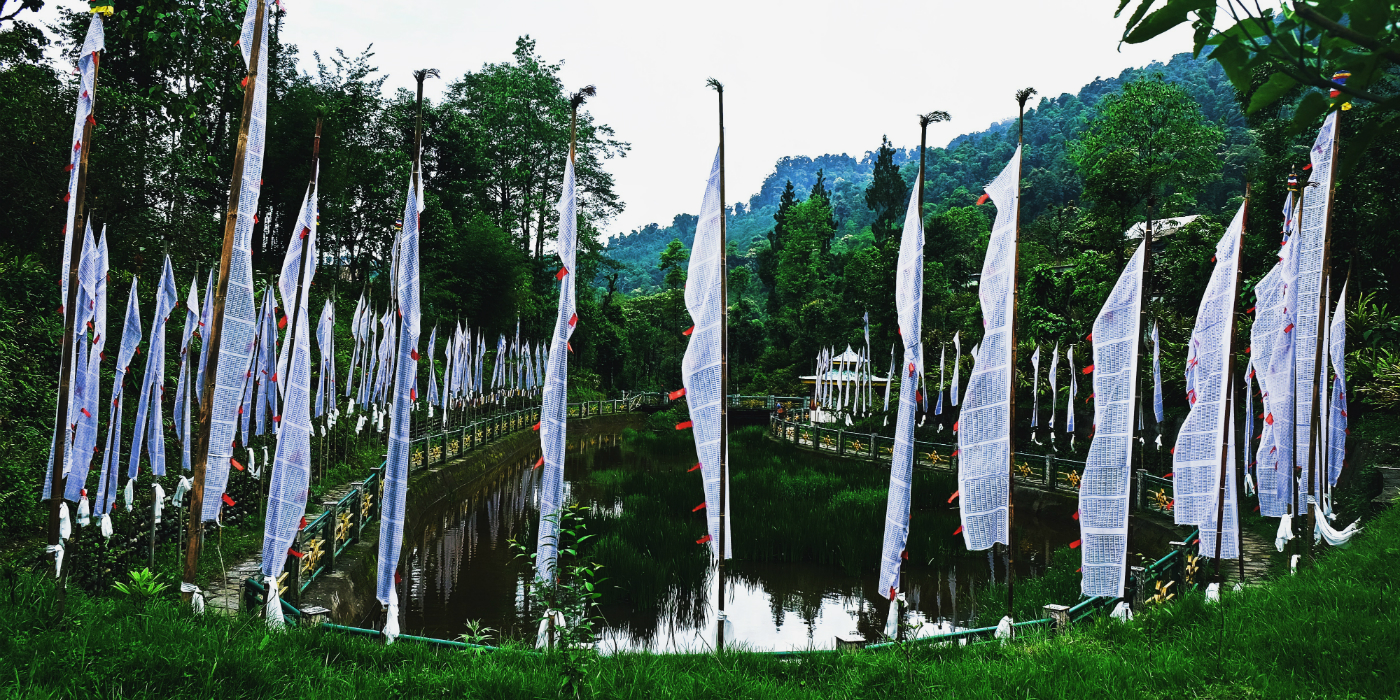
Slow Travel
Eshab grows its own food in its organic farm. The homestay also leads a cleanliness drive in the village to clear all litter at the end of the tourist season. The homestay follows the 3R (reduce, reuse and recycle) method to ensure better waste management. The homestay also plants at least 30 to 50 tree saplings in a year around the homestay or in the barren land in the village.
